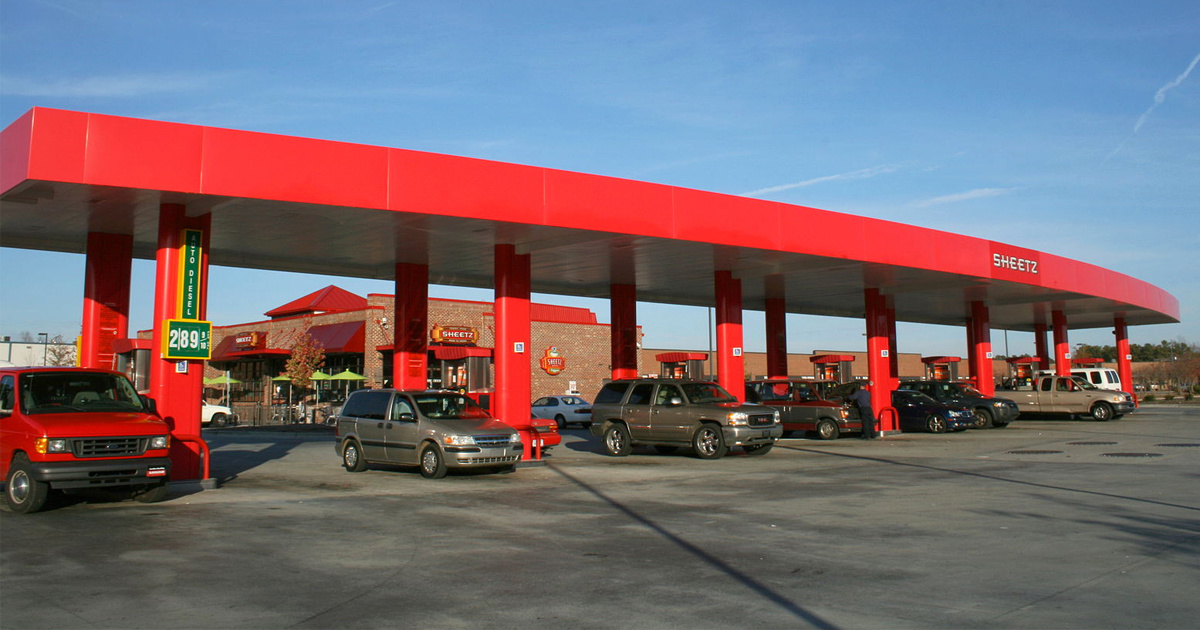

Ildar Sagdejev / Wikimedia / CC BY-SA 4.0
By Rhea Suh
It’s not often that an industry chieftain brags to investors about picking the pockets of American families with help from the White House.
That’s what happened, though, after Big Oil schemed with the Trump administration last summer to ensure higher gasoline consumption—to the tune of $16 billion a year—and more climate-disrupting carbon pollution from our cars, vans and pickup trucks.
An important investigative story by the New York Times lays bare this craven sellout of the public interest and details the hammerlock the oil industry has on domestic policy under President Trump. The article details how the Trump administration bowed to the major oil companies to try and gut commonsense rules that were already saving consumers billions of dollars a year at the pump and helping clean up our dirty tailpipe emissions.
In a cynical confession, Gary Heminger, chairman of Marathon Petroleum, boasted to analysts last week that weakening the clean car rules would boost gasoline sales by up to 16.8 million gallons a day.
At $2.65 a gallon, the national November average, that comes to $44.5 million a day, or more than $16 billion a year, money that American workers won’t be able to spend on their families’ needs because it will go, instead, to the oil industry. “However,” Heminger warned investors, “you have another side who doesn’t want to pivot away” from the fuel savings and pollution reductions the rules support. “So we have a lot of work to do to keep this momentum going.”
That so-called “work” doesn’t come cheap. In the national elections of 2016 and 2018, campaign contributions from the oil and gas industry totaled $176 million, with 87 cents of every dollar going to Trump’s party.
It’s paying off for the industry—at the country’s expense.
In 2012, with the endorsement of the major automakers, the U.S. Environmental Protection Agency and the U.S. Department of Transportation teamed up on a pair of rules that cut tailpipe pollution from our cars, vans, SUVs and pickup trucks. The rules had the industry on track to double gas mileage by 2025, cutting the nation’s oil consumption by a staggering 2.4 million barrels per day by 2030.
It’s one of the most important steps we’ve taken, as a country, to protect future generations from the growing dangers of climate change. That’s because our cars and light trucks account for about 17 percent of U.S. emissions of carbon dioxide and other greenhouse gases contributing to the problem. Mile for mile, the 2012 rules cut the carbon footprint of driving in half.
The measures have supported a surge in manufacturing jobs, with nearly 300,000 Americans hard at work helping us to get more miles from a gallon of gas or moving us closer to the electric cars and hybrid vehicles of the future. Some 70,000 of those jobs are in Michigan alone, where more than 224 facilities are turning out materials or components to help make our cars run cleaner and more efficiently.
Last August, though, the Trump administration proposed gutting the rules, throwing national support for clean car progress into reverse. Automakers wanted flexibility in meeting the clean car standards. On balance, though, the rules complemented tens of billions of dollars in industry investment in a new generation of automobiles.
So it was something of a mystery as to why the administration turned away from standards that save our families billions of dollars a year at the pump, fight the central environmental challenge of our time, and help create scores of thousands of well-paying jobs. The Times article provides the answer: it’s not the automakers but, rather, the oil companies that see the road ahead through the rearview mirror.
We’re not going to stand by and watch Donald Trump put our future at risk to pump up oil profits. We’re fighting this proposal. We’ll make our case in court, if necessary, and we’ve joined other groups in calling on the EPA and the Transportation Department to come clean about how the administration sold out our environment and our pocketbooks in its fealty to fossil fuels.
As my NRDC colleague Luke Tonachel testified in a federal hearing on the proposed changes last September, “We Americans pay taxes so that the government will serve and protect us, not Big Oil.”
Rhea Suh is the president of the Natural Resources Defense Council.

 233k
233k  41k
41k  Subscribe
Subscribe 